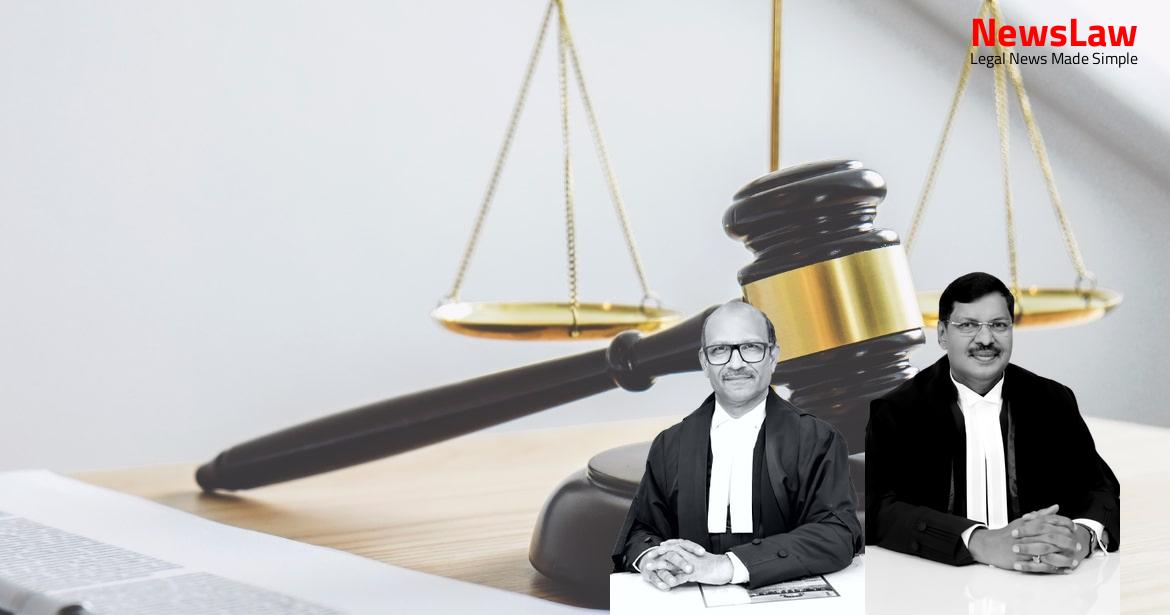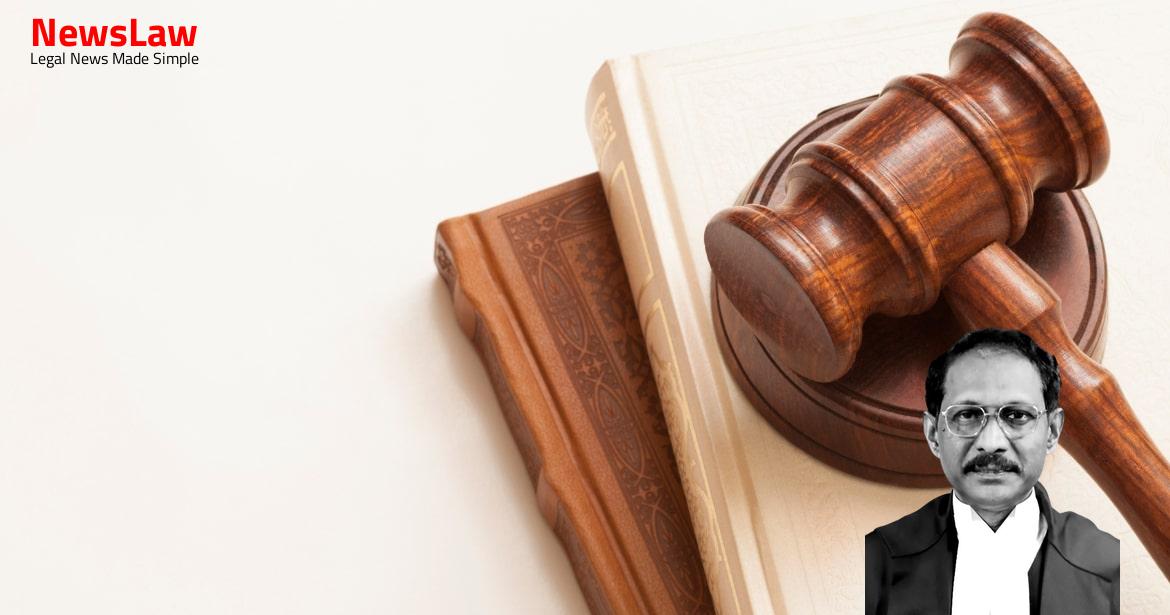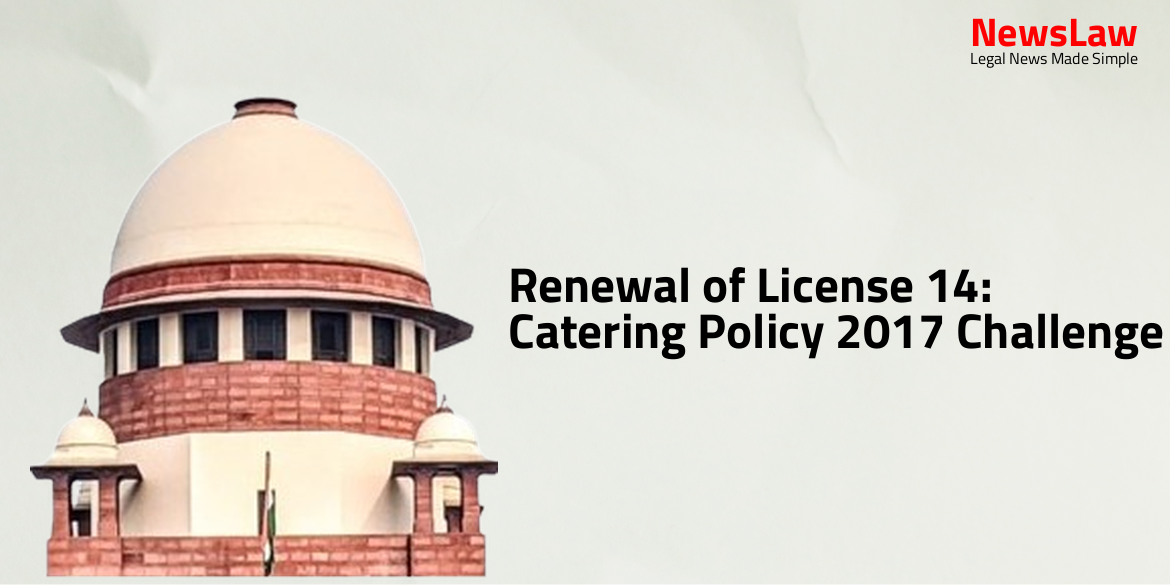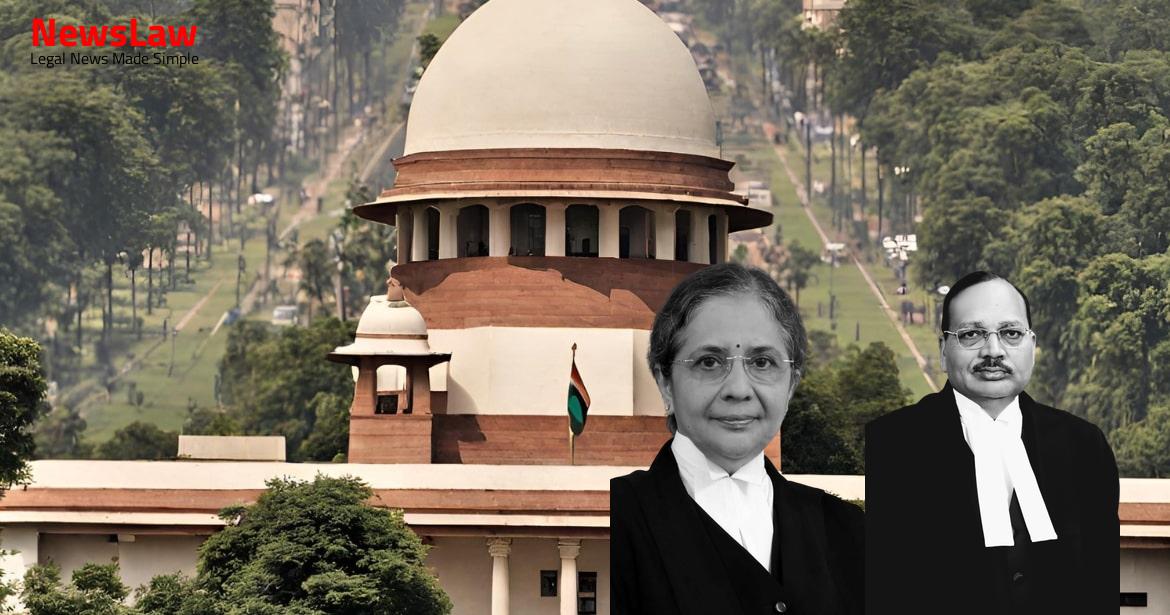In a significant legal development, a review petition was filed by landowners against the State of Haryana, challenging the previous judgment dated 7 April 2022 in Civil Appeal No 6990 of 2014. The Supreme Court of India has allowed the review petition to proceed, indicating a potential shift in the case dynamics. Stay updated on this case involving the landowners and the State of Haryana for insights into land rights and legal proceedings.
Facts
- Review Petition filed by the review petitioner against the amendment.
- The review petitioner along with similar landowners filed Writ Petitions before the High Court.
- The common pool of land called ‘shamilat deh’ is meant for village inhabitants’ common purposes.
- The State’s grievance was with clause (iii) of the judgment, which held that lands not earmarked for common purposes in the consolidation scheme would continue to vest with the proprietors.
- The Court found the conclusion of clause (iii) erroneous and unsustainable, ruling that unutilized land cannot be redistributed among proprietors.
- Different High Court benches’ findings were deemed clearly erroneous and unsustainable.
- Lands reserved for common purposes cannot be re-partitioned among proprietors, even if not put to common use at a given time.
- The concept of ‘common purpose’ is dynamic and should not be reverted to proprietors for redistribution once reserved.
- The Court emphasized limited permissible inquiry and clarified that the case cannot be heard as an appeal from the judgment.
- The Full Bench of the High Court partially allowed the petition after finding the lands in question within the ceiling limit.
- In the first round of litigation, the High Court declared certain provisions unconstitutional but the decision was later set aside by this Court for factual determination.
- A Civil Appeal filed by the State of Haryana was allowed by this Court, leading to the dismissal of the Original Writ Petitioners’ case.
- Specifically earmarked lands for mentioned purposes in the consolidation scheme were considered ‘modification’ rather than acquisition, per this Court’s decision in a related case.
Also Read: State vs. Selvamani: Upholding Fair Trial Conduct
Arguments
- The title of the land still vests in the proprietary body according to Rule 16(ii) of the Consolidation Rules.
- Unused lands after utilizing the earmarked common lands must be redistributed among proprietors based on their contributions.
- Judgments in Gurjant Singh’s case were not reiterated in detail in this case.
- The Full Bench in Jai Singh II correctly held that reserved but unallocated lands do not come under Section 2(g)(6) of the 1961 Act.
- The Constitution Bench in Bhagat Ram affirmed that until possession changes, management does not transfer to the Panchayat under Section 23-A and Section 24.
- The JUR judgment was deemed contrary to the established law in Bhagat Ram and Ranjit Singh cases.
- Proprietors are entitled to a share in benefits based on previous judgments influencing numerous transactions.
- Arguments were presented in Bhagat Ram regarding when the acquisition took place before the Constitutional Amendment Act of 1964.
- The lands reserved but not designated for common purposes do not vest in the Gram Panchayat or State Government as per previous court judgments.
- Shri Pradeep Kant, learned Senior Counsel for the State of Haryana argues that the review petition itself is not maintainable.
- The review applicant was a party respondent in the appeal with the JUR being delivered after hearing the counsels for both parties.
- Mr. Harsh N. Salve, learned Solicitor General objects to certain observations in the judgment related to the exercise not being done throughout Punjab, Haryana, and villages in Union Territory, Chandigarh.
- He cites relevant judgments to support his arguments.
- The counsel for the State argues that the rights to possession of new holdings were finalized under Section 21, and therefore, the JUR needs to be recalled.
- It is emphasized that the scope of review is limited and a party cannot reargue questions that have already been addressed and decided.
Also Read: Land Dispute Legal Battle: Vijay Laxman Bhawe vs. P & S Nirman Pvt. Ltd.
Analysis
- The Constitution Bench held that the transference of an estate to the State results in the extinguishment of all rights of the holder of the estate.
- Any income derived from land reserved for common purposes must benefit the village community.
- The rights of owners are not modified or extinguished until possession changes and they enter into the holdings allotted to them.
- The court emphasized the distinction between ‘acquisition by the State’ and ‘modification or extinguishment of rights,’ stating that the beneficiary in the former case is the State.
- The court noted that overlooking the law set by the Constitution Bench in Bhagat Ram, and taking a contradictory view would be a significant error.
- The court highlighted that substantial deprivation that substantially robs a man of the attributes of property enjoyment would fall under the category of acquisition by the State.
- The judgment mentioned that the review jurisdiction should only be exercised for clear errors on the face of the record and not for fishing out errors.
- The court pointed out the importance of paying compensation at market rate before depriving a person cultivating land protected under Article 31-A.
- The judgment underlined the necessity of considering the law set by higher courts when dealing with review jurisdiction.
- In Chhajju Ram v. Neki and Moran Mar Basselios Catholicos v. Most Rev. Mar Poulose Athanasius, the interpretation of “any other sufficient reason” has been specified as a reason sufficient on grounds analogous to those in the rule.
- Land collected from tenureholders for consolidation schemes and left unutilized vests with proprietors.
- Review grounds as per the statute include the discovery of new evidence, an error on the record, and any other sufficient reason.
- Acquisition by the State defined widely in cases like State of West Bengal v. Subodh Gopal Bose and Bombay Dyeing and Manufacturing Co. Ltd. v. State of Bombay.
- The reservation of land for the Panchayat’s income conflicting with the second proviso of Article 31-A in Bhagat Ram v. State of Punjab.
- Income from Panchayat lands to be used for village community benefits only.
- Management and control do not vest in the Panchayat until possession changes under the Consolidation Act.
- Reservation of land for the Panchayat’s income considered against the second proviso of Article 31-A.
- The reservation of land for income of the Panchayat could constitute land acquisition by the State within the second proviso of Article 31-A.
- The unutilized ‘Bachat land’ must be redistributed among proprietors after utilizing land for common purposes.
- Compulsory acquisition without compensation for individual land under the second proviso of Article 31-A is not permissible.
- The word ‘acquisition’ has a broad concept including the procuring of property permanently or temporarily.
- Article 31-A allows for laws providing for acquisition of property by the State without being deemed void
- Compensation for acquired property must not be less than market value
- Article 19 guarantees citizens the right to acquire, hold, and dispose of property
- Property can only be compulsorily acquired for public purpose and with compensation as per law
- Sections 23-A and 24 outline the management and control of lands assigned for common purposes in villages
- Consolidation Officer has powers under Punjab Land Revenue Act for compliance with provisions
- The Full Bench of the High Court in Jai Singh II referred to various case laws from 1967 to 1997
- The Division Bench in Gurjant Singh noted judgments based on the law laid down by the Constitution Bench in Bhagat Ram
- The Full Bench in Jai Singh II held that Bachat land vests with the proprietors and not with the Gram Panchayat
- The Full Bench also mentioned that over 100 judgments by the Punjab & Haryana High Court have consistently taken a certain view
- Applying the doctrine of stare decisis, the Full Bench stated that such a view cannot be overturned
- The reasoning given by the Full Bench of the High Court in Jai Singh II is important.
- The doctrine of stare decisis is applicable due to over 100 decisions by various Benches of the High Court.
- Non-consideration of this reasoning would be an error on the face of the record.
Also Read: Dr. Kulwant Singh vs. Maternal Grandmother: Custody Dispute Supreme Court Judgment
Decision
- Review petition allowed by the court.
- The judgment and order dated 7 April 2022 in Civil Appeal No 6990 of 2014 is recalled.
- The appeal is restored to file.
- The appeal is directed to be listed for hearing on 7 August 2024 at Serial No.1.
Case Title: KARNAIL SINGH Vs. STATE OF HARYANA THROUGH SECRETARY TO GOVERNMENT OF HARYANA (2024 INSC 424)
Case Number: R.P.(C) No.-000526 – 2023



